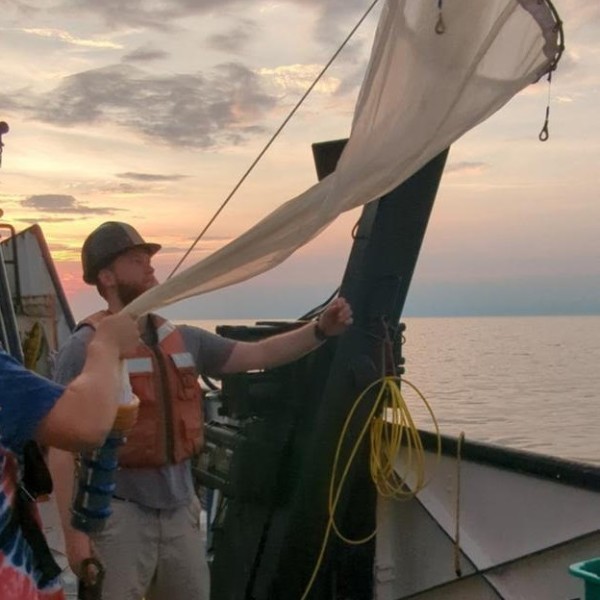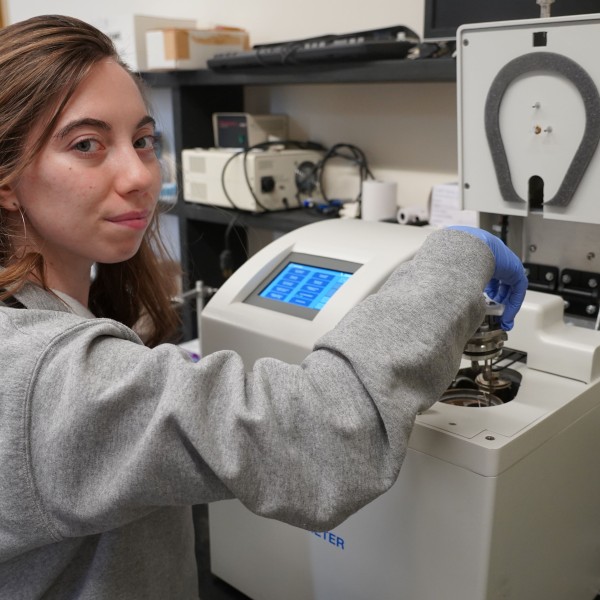Treibergs also said that unexpected things happen in the field, and students sharing those moments together helps creates a sense of community.
This sense of community contributes to student success in their research projects as well. Students have to go beyond what they learn in the classroom and conduct research, from asking a question, to developing a hypothesis, identifying methods, collecting field data, and reporting their results. The focus of the assignment is as much about building teamwork skills as it is about going through the research process.
“We have them work in teams to get the true experience of scientific research,” said Treibergs.
“Science is rarely done alone; it’s always done in collaboration.”
The instructors prepare students to work in teams so that the project work is equitable, effective, and enjoyable too. They begin the process by having students reflect on what makes teams successful.
Goebel & Treibergs then put students into teams based on mutual research and career interests. This is essential because the students themselves design every aspect of their projects; focusing on a topic in which they are interested helps them feel more invested in the work.
While Goebel focuses on the research outcome, he also gives students essential exposure to the research process from start to finish, noting that the students have limited time to carry out their field research.
“The importance of the research project also lies in the skills and understanding students gain by going through the entire process and overcoming any roadblocks they encounter,” he said.
Navigating the challenges of the field research process also helps build student confidence.
“Taking field biology changes students’ understanding of the environment around them,” said Goebel.
“Students have come back to tell me they look at campus differently now. They can identify the plants and animals they see when walking to their next class. It is as if they see their world through different eyes now.”
This project was funded by a gift from Alex Hanson ‘87 and Laura Hanson ‘87. The Active Learning Initiative, developed within the College of Arts and Sciences with help from the Hansons, is supported by Cornell's Office of the Vice Provost for Academic Innovation and the Center for Teaching Innovation.
Dave Winterstein is a communication specialist at the Center for Teaching Innovation.






